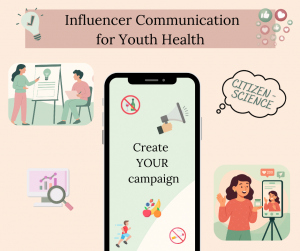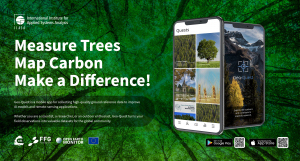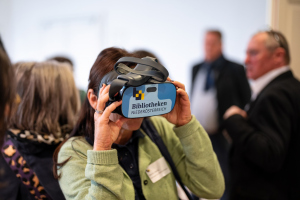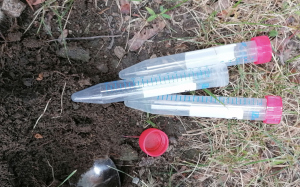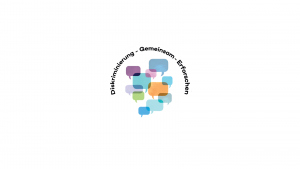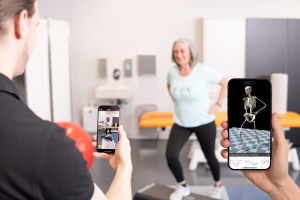
Florian Heigl
Influencer Communication for Youth Health
(INCO)
In this project, young people work closely with researchers to develop ideas for social media campaigns for health promotion. They share their experiences and design first concepts. Selected campaigns are tested in experimental studies, evaluated, and thoroughly discussed with the participants.
What are the aims of the project?
The project aims to develop new ideas for health promotion on social media together with young people. Students are not only asked for their opinions but actively shape the research process. In workshops, they discuss how influencers can present health topics in engaging ways and create their own campaign proposals. The most convincing ideas are tested in scientific online studies to examine their impact. Afterwards, the results are reflected on together with the students and presented publicly. This creates an innovative approach that raises awareness of health promotion among young people, values their perspectives, and delivers practical, evidence-based communication strategies that can be directly applied in real campaigns.
How can I participate in the research?
In line with the citizen science approach, young people can actively experience and help shape the entire research process: - Participation in school classes: Three selected classes take part in developing campaigns for youth health promotion. - Contributing ideas: Young people share their experiences, discuss relevant health topics, and develop initial concepts for influencer campaigns. - Workshops: In creative and design-thinking workshops, concrete social media campaigns are developed. - Competition & selection: The best ideas are evaluated and selected by the classes. - Online studies: Selected campaigns are tested in an online experiment with around 1,500 participants. - Reflection: Results are reflected upon together with the young people. - Contribution to results: Young people provide feedback, support scientific publications, and contribute their perspectives to the further development of the project.

New project: Tree-Quest
A warm welcome to the new citizen science project Tree-Quest. The Tree-Quest project aims to develop an Austrian citizen science (CS) data component to close the in situ data gap for more reliable forest mapping with Copernicus satellite data.
Tree-Quest
The Tree-Quest project aims at developing an Austrian citizen science (CS) data component to bridge the in-situ data gap for more reliable forest mapping with Copernicus satellite data.
What are the aims of the project?
We’re inviting everyone to join our new citizen science campaign through the free Geo-Quest app. Using the Tree-Quest module, you can head outside and measure trees in your neighborhood — and discover how much carbon they store! You’ll learn how trees help fight climate change and see how many trees it takes to balance out the carbon emissions from things like driving or flying. The data you collect will also support scientists in creating better maps of carbon stored in forests, using satellite images from space.
How can you participate in the research?
How to Join the Tree Quest Carbon Campaign: Simple Steps
- Download the Geo-Quest app - Get the free app on your smartphone from the App Store or Google Play.
- Open the Tree-Quest module Launch the app and select the Tree-Quest feature to start measuring trees.
- Find a tree near you - Head outside and pick a tree in your neighborhood, park, or nearby green space.
- Measure the tree - Use the app to measure the tree’s diameter and height. Identify the tree species if you can.
- Submit your data - Enter the measurements into the app and send your data to help scientists.
- Repeat and explore -Measure more trees around you to contribute even more valuable information
- Share your impact -Tell friends and family about the campaign and encourage them to join!
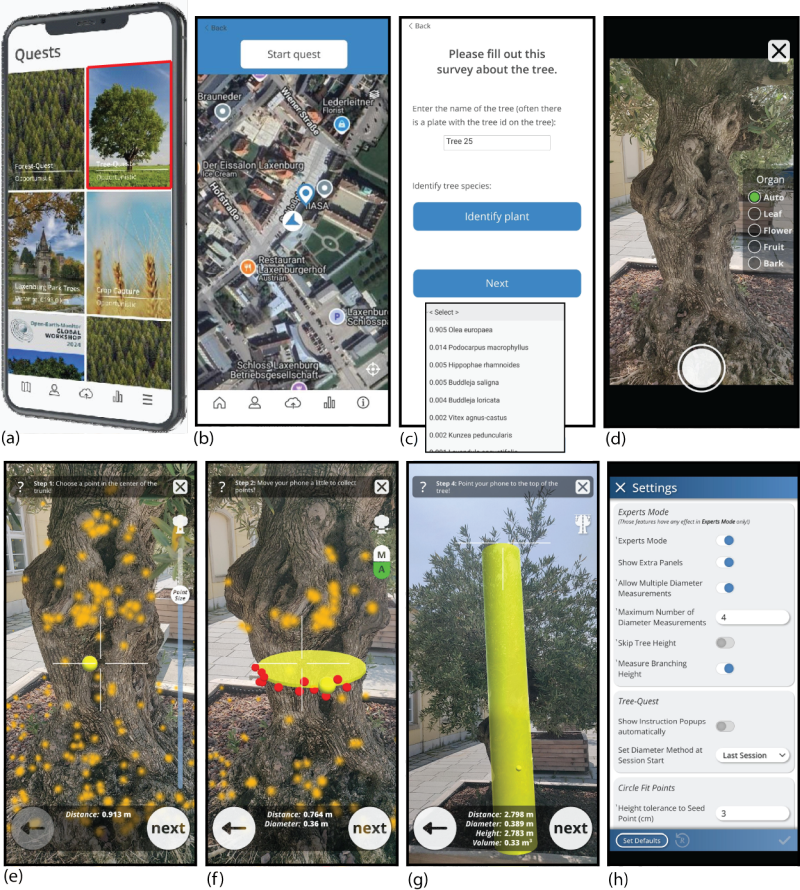

New project: HealthCheckR
In the new HealthCheckR project, the project team is working with citizens to develop a tool for identifying reliable health information on social media. Their aim is to counteract misinformation and support good decisions for people's own health.
HealthCheckR
Identifying trustworthy health information on social media
In the HealthCheckR project, we are working with citizens to create a simple tool that helps people find trustworthy health information on social media. This will help stop false information and support better health decisions.
What are the goals of the project?
The goal of the project is to develop an easy-to-understand and tested tool together with citizens that helps identify whether health information on social media is trustworthy.
How can you contribute to the project?
You can contribute to our project in different ways – we’re happy to have you on board! Here’s how you can take part:
- Share your opinion & help shape the tool as a citizen scientist, you can:
- take part in workshops or surveys,
- give feedback on early versions of the tool,
- tell us what works well and what needs improvement.
- Test our tool
- You can try out the prototype and let us know how easy it is to use, how clear the content is, and whether it meets your needs.
- Help spread the word
- If you like, you can support us in sharing the final tool – for example, via your social media channels or in conversations with others.
How to join the project
We’ll soon publish all relevant information about how to participate, including key dates and contact details, on our project website and through our social media channels. Or just send us an email.
The main roles and responsibilities are:
Citizen Scientists as members of the Project Steering Group (PSG):
In this role, they share their experiences as users of social media. Together with experts, they help make important decisions about the project. For example:
- choosing a project name and logo,
- planning the co-research workshops,
- discussing the results of the literature review,
- helping to invite more Citizen Scientists,
- deciding how the tool should look and work,
- contributing to the communication strategy,
- helping to share the project results – and more.
Citizen Scientists as co-researchers:
They support the research team in understanding findings from other studies – especially from the perspective of people who use social media to find health information.
They help check which findings are relevant in Austria and help write the evaluation criteria in a clear and easy-to-understand way.
Citizen Scientists as co-designers:
The main outcome of the project is a tool that helps people check the reliability of health information on social media. This tool is developed together with Citizen Scientists in co-design workshops.
They also help plan how to share the tool – for example on social media or at events – so that it reaches as many people as possible.
There are also several roles within the research team:
These include:
- project management,
- contribution to the literature review,
- organizing and moderating workshops,
- communication with experts and the public.
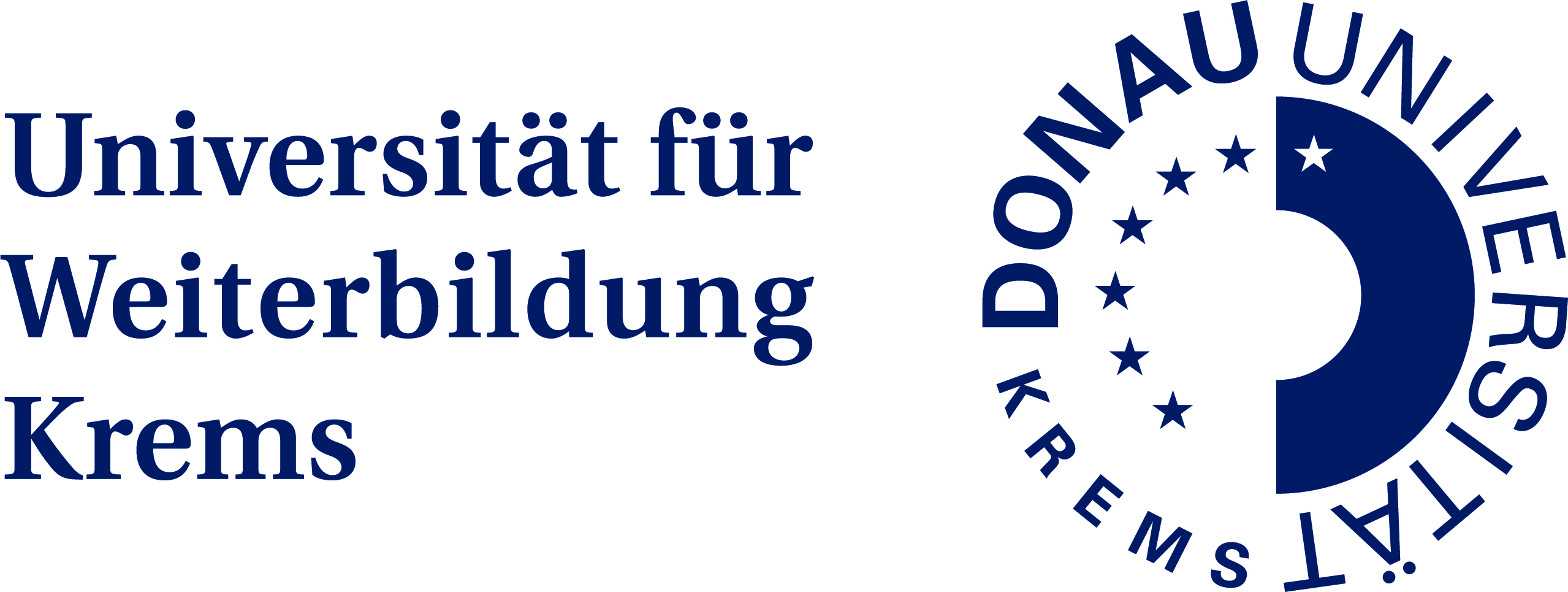
Meeting Point Library
Lower Austrian office for public libraries (federal funded)
Meeting Point Library (Treffpunkt Bibliothek) is responsible for providing services and support to public librarians and their work in roughly 260 public libraries across Lower Austria. A core part of their mission involves advising services and developing strategies to actively shape the ongoing transformation in librarianship.
Public libraries are significantly expanding their traditional role, moving beyond just offering books and cultural assets. They're evolving into modern, citizen-focused learning hubs and becoming vital community centers. They empower individuals to gain new skills and deepen existing ones, fostering lifelong learning as a continuous process of personal growth, and making a crucial contribution to social inclusion.
Beyond these established roles, libraries are consistently exploring new fields. A key, forward-thinking area is the active integration of Citizen Science projects. Libraries enable people to actively engage in scientific research—whether by building specialized collections, providing spaces for collaborative work, or creating platforms for exchange. This not only boosts knowledge generation but also strengthens cooperation between science and society.
Environmental distribution of bisphenol A
The project “Environmental distribution of bisphenol A” investigates the possible spread of bisphenol A (BPA) in our environment. To this end, citizen scientists collect samples (soil, sludge, water, etc.) and send them to our laboratory, where the BPA concentration in the samples is determined.
What are the aims of the project?
Via a public sampling approach, any kind of sample that possibly contains BPA is sent to the lab and BPA concentrations are determined. The team of the project aims at creating a map of the different sample locations with respective BPA concentrations. Detailed data on BPA concentration of each single samples will be made available to every citizen scientist.
How can you participate in research?
Please send us any type of sample (soil, sediment, water, etc.). You can request a sampling kit free of charge on our project page. There you will find instructions on how to take samples. We will test the sample for possible BPA concentrations and send you the results by email. You will be helping us to create a map showing BPA concentrations.
Researching Discrimination with Citizen Science
Discrimination is often difficult to grasp, both in everyday life and in research. By involving citizen scientists, we aim to broaden knowledge about discrimination.
What are the aims of the project?
Racist discrimination and stigmatization are difficult to grasp both in everyday life and in research, as they are often hidden behind naturalizations or justified with different rationales and intersectional categories. By involving people with different horizons of knowledge and experience in the analytical process, the citizen science project aims to deepen the sociological understanding of ethnoracial exclusion including the perspectives and interpretations of citizen scientists – thus expanding the interpretations of the academic researchers.
How can you participate in research?
At the beginning of the project, participants are introduced to basics of the analysis of qualitative data. In interpretation workshops, participants then work together in small groups and analyse interview passages from a current research project (for more information see demico.univie.ac.at). They discuss their interpretations and collect important points in writing. Later on, there is also the opportunity to contribute to the publication and presentation of results. Experience with research is NOT a requirement, on the contrary: participants are (adult) persons WITHOUT trainingn in social sciences. The only criterion for participation is an interest in research on the subject of discrimination.
https://www.citizen-science.at/en/network/international-partners/author/934-florianheigl?start=0#sigProId42b227e4a7
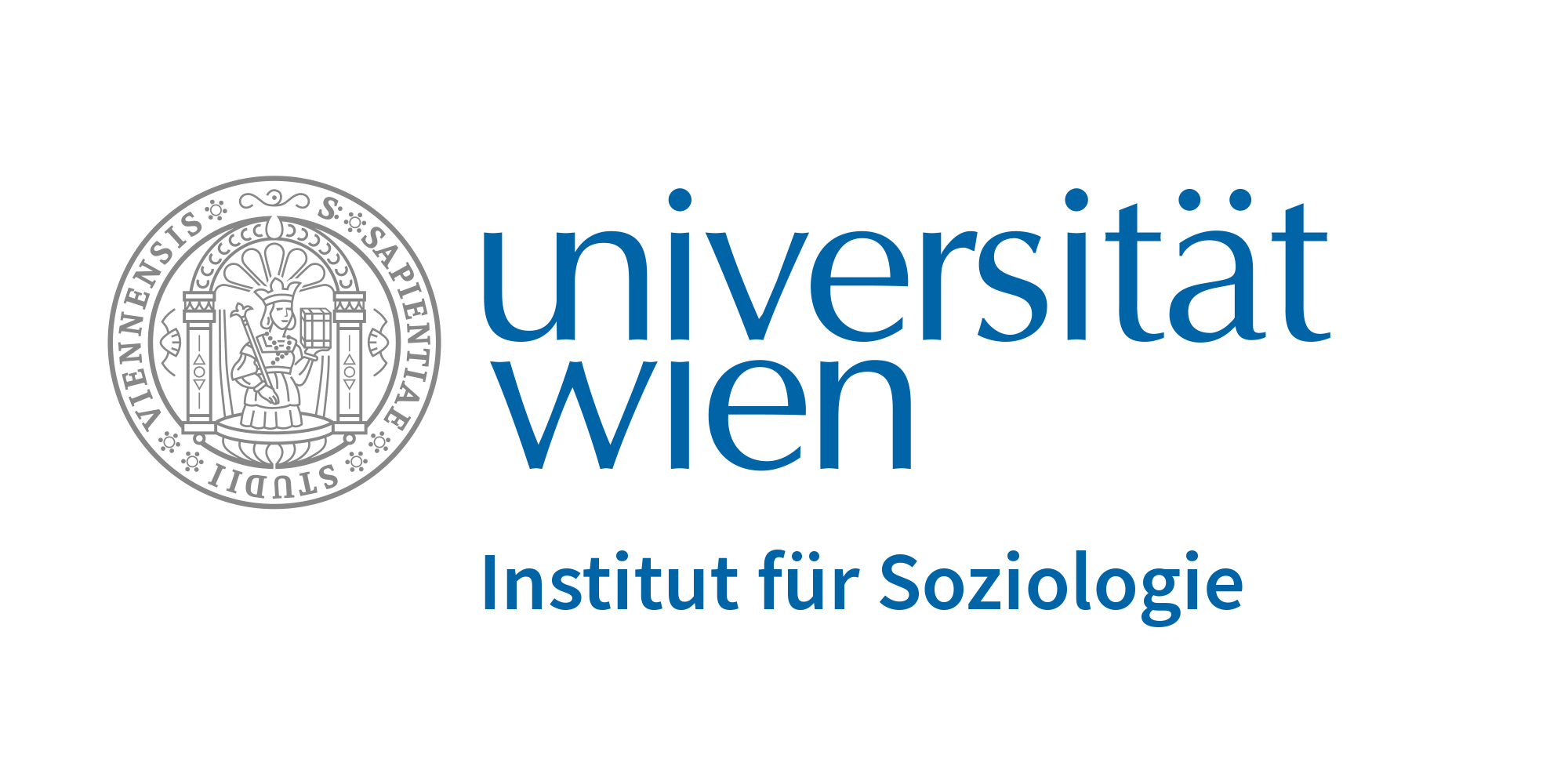

Austrian Science Fund (FWF): 10.55776/TCS150
COwWEL
A OneWelfare approach studying food vulnerability.
The project "COwWEL" examines, together with citizen scientists from socio-economically disadvantaged groups, conditions that promote or hinder healthy and sustainable consumption behaviour in these groups, taking into account attitudes toward animals and their welfare. The goal is to develop strategies and information material to promote fairer and more sustainable food systems.
What are the aims of the project?
- Evaluation of conditions that promote or hinder the establishment of healthy and sustainable eating practices for vulnerable groups
- Investigation of the role of concepts of human-animal relationships and the welfare of humans and animals (One Welfare).
- Development of individual and political strategies to promote healthy and sustainable food consumption and creation of supporting materials.
- Contribution to the development of healthier, more inclusive, and sustainable food systems through integration into the main project COwLEARNING.
How can you participate in research?
The target group consists of citizens from three vulnerable groups: Syrians or other people of Arab descent, Ukrainians, and Austrians who have received food from food banks in the last five years. In an initial workshop, hypotheses will be developed together, forming the basis for the creation of a questionnaire. After the questionnaire is created, reviewed, and the citizen scientists are trained in interviewing, data collection will take place (i.e., interviewing individuals from the respective vulnerable groups). Following data analysis by the scientific team, individual, societal, and political strategies for sustainable food consumption in vulnerable groups will be developed in a second workshop together with institutions.
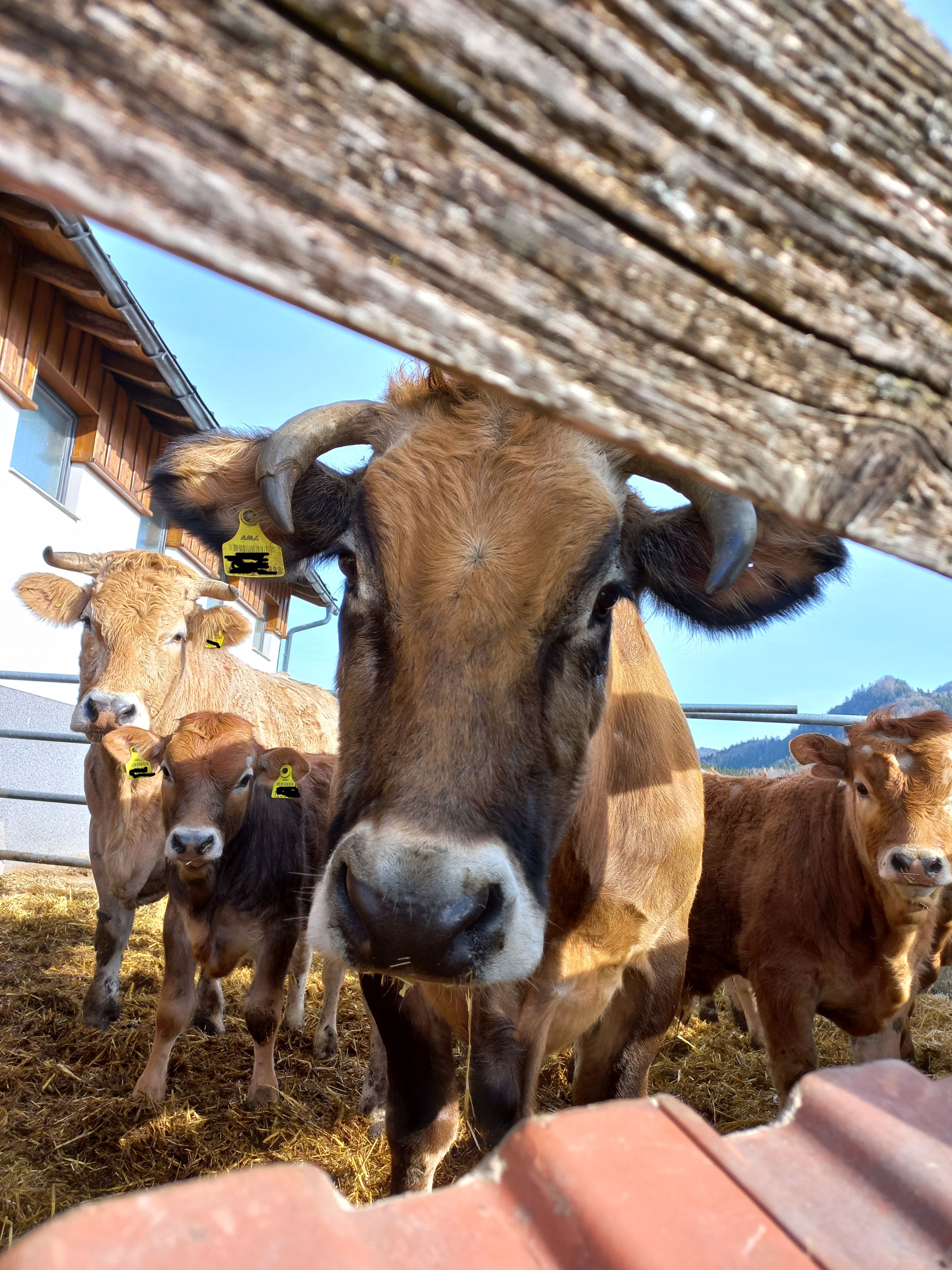
ACCESS
Smart Movement Analysis for Knee Osteoarthritis
ACCESS investigates how knee osteoarthritis affects movement — directly in physiotherapy practices using modern 3D movement-analysis technology. Patients and physiotherapists collaborate with researchers to gain new insights for better treatment.
What are the aims of the project?
ACCESS investigates how knee osteoarthritis affects everyday movement. The goal is to capture movement patterns of patients using innovative 3D motion analysis — directly in physiotherapy practices. Together with physiotherapists, both movement data and information on pain, function, and quality of life are collected. This leads to new scientific insights into how osteoarthritis affects mobility and how therapies can be better tailored. By participating, citizens contribute valuable data to research while gaining insights into modern movement technology and their own health.
How can you participate in research?
You can join ACCESS either as a physiotherapist or as a patient with knee osteoarthritis. Physiotherapists collect movement data using two smartphone cameras to analyze functional tests (Walking, Sit-to-Stand, stair climbing) and health information. Patients voluntarily take part in the 3D motion analysis and complete questionnaires on pain, function, and quality of life. Both groups receive clear instructions and are actively involved in the research — hands-on, anonymous, and directly integrated into everyday therapy.



